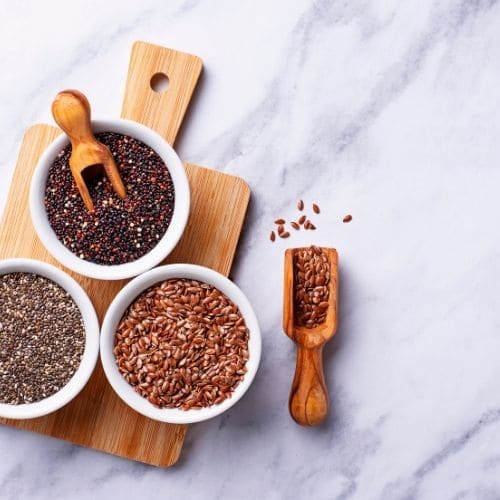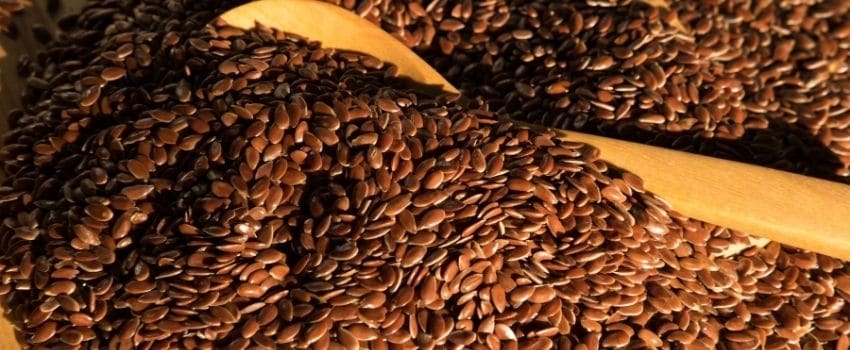Table of Contents
Testosterone is a sex hormone found in both men and women. In men, testosterone is hugely involved in sexual health. It drives men’s sex drive and influences their ability to gain lean muscle mass.
High testosterone levels help men (and even women) gain more muscle mass. That’s why most muscle-building supplements focus on increasing testosterone levels. In fact, the old performance-enhancing steroids were used to introduce a synthetic version of the hormone to optimize muscle building. Due to the important functions of the hormone in men, testosterone is sometimes referred to as a male sex hormone.
Women, too, have the hormone. They also rely on it to retain muscle mass. However, testosterone levels in women are usually much lower. Increasing the hormone levels in women can result in severe issues, including virilization. That basically refers to the expression of male characteristics in women, e.g., deepening of the voice, irregular hair growth, etc.
Despite its importance, testosterone levels in the body are affected by various factors. First, testosterone levels drop gradually as we age. One study reports that men lose around 1 percent of their testosterone every year after hitting 30 years.
Besides aging, certain foods also affect our testosterone levels. One of those foods is Flaxseeds. Multiple reports show that Flaxseeds reduce testosterone levels. This is a serious problem considering Flaxseeds are healthy, especially for the heart. They are rich in healthy fatty acids, which boost heart health. They also contain gut-friendly fibers. But while you may want to use them for their vast benefits, you should know that they will negatively impact your testosterone levels.
How Flaxseeds affect testosterone levels
According to multiple reports, flaxseeds contain lignan, which contributes to the reduction of testosterone levels. The lignans are said to bind to free testosterone levels and facilitate the excretion of the hormone. That results in reduced free testosterone levels in the body.

Additionally, flaxseeds are also said to contain omega-3 fatty acids. These fatty acids have also been linked to decreased testosterone levels.
For example, in one study involving 78 women, omega-3 fatty acids were observed to lower serum concentrations of testosterone. The women who took omega-3 fatty acids also experienced regular menstrual cycles.
Flaxseed's effects on testosterone levels are not all negative, though. The food’s ability to reduce testosterone levels can be a benefit to certain demographics. For example, women require testosterone, but it becomes more harmful than good when present at high levels. In such cases, affected women will be asked to find a way to drop their testosterone levels. Flaxseeds offer a natural way to achieve that.
Various studies have actually been done to investigate the potential benefits of Flaxseeds in reducing testosterone levels. In one case study involving a 31-year-old woman with PCOS (polycystic ovary syndrome), Flaxseed reduced testosterone levels and helped relieve some PCOS symptoms.
That hints at potential use cases of Flaxseeds in treating PCOS symptoms. However, additional research is still necessary to fully understand the impact of Flaxseeds on PCOS patients.
Signs of low testosterone
So, how do you know you have low testosterone levels. Diminished testosterone levels are seen through symptoms such as weight gain, low sex drive, erectile dysfunction, lower energy levels, depressed mood, irritability, reduced muscle mass, and poor memory and concentration.
How to raise testosterone levels
Fortunately, there is a way to reverse the effects of flaxseeds on testosterone. Actually, there are various ways to do that.
You can start by adjusting your diet. Basically, you want to add new foods that are known to boost testosterone levels in the body. Some of these foods are oysters, fatty fish, fish oil, leafy green vegetables, extra virgin olive oil, ginger, pomegranates, onions, eggs, almonds, etc.
Enhancing your diet is an easy and natural way to boost t-levels. However, it’s not always the most efficient or quickest way to do that. For that reason, you may want to consider the second option: testosterone supplements.

Testosterone supplements like Testogen or TestoPrime are known to raise testosterone levels at a faster rate. This is because they combine multiple natural ingredients to get the job done. These supplements can raise testosterone levels by increasing the production of testosterone. Additionally, they can increase free testosterone levels by reducing the impact of sex hormone-binding globulin (SHBG). SHBG is a protein that traps testosterone making it unusable to the body.
Of course, you’ll have to search for the right testosterone supplements as most of them simply don’t work. You should also consider the safety of the supplement. Choose testosterone boosters that contain safe and proven ingredients.
In Closing
Flaxseed is healthy for the most part. It’s good for your heart and gut health. However, it also has a downside in that it reduces testosterone levels. This is a huge problem in men where testosterone plays a critical role in all matters “masculine.” However, the effect could be a good thing for women with PCOS, where reducing testosterone levels is essential.
The good news is that men can enjoy the benefits of flaxseeds without having to deal with its adverse effects on testosterone. For that, you’ll need to make changes to your diet to incorporate testosterone-boosting foods. Exercising can also increase testosterone levels.
In addition to that, you can increase your t-levels with testosterone boosters. This is a far more efficient method, so it’s ideal if you want quicker results.

